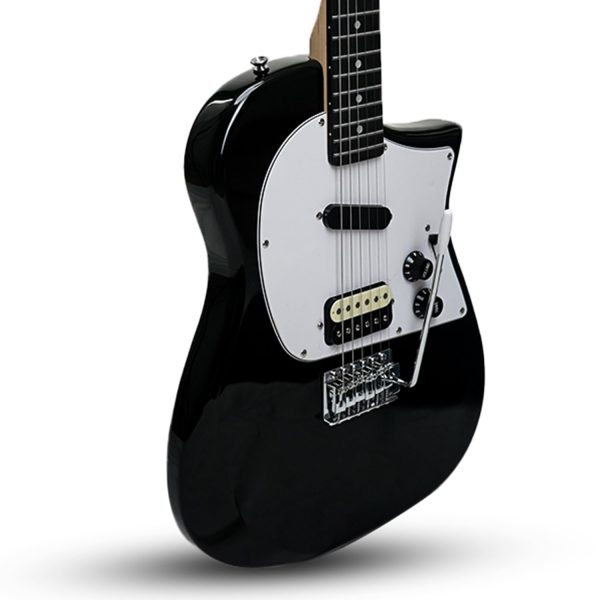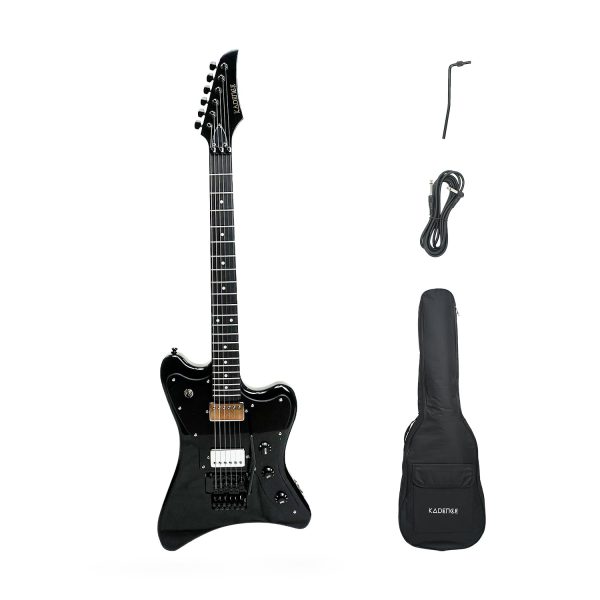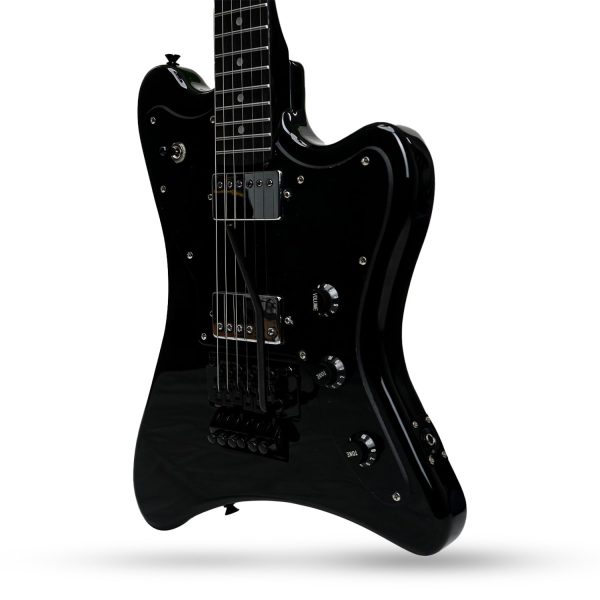Astroman Electric Guitar Series
Kadence Astroman Series: Premium Electric Guitars
Electric guitars, with their electrifying riffs and soaring solos, have captivated music lovers for decades.
Whether you’re a seasoned musician yearning for your new sword or a wide-eyed beginner ready to embark on your musical journey, choosing the right electric guitar can feel like navigating a sonic labyrinth.
Fear not, aspiring Rockstar’s! This comprehensive guide will equip you with the knowledge and insights to find the perfect electric guitar that matches your sound, style, and budget.
What is an Electric Guitar? How does it work?
An electric guitar is a stringed instrument that uses pickups to convert the vibrations of its strings into electrical signals.
These signals are then amplified and projected through speakers, creating the iconic sounds that have fueled countless musical genres, from rock and blues to jazz and metal.
Unlike their acoustic counterparts, electric guitars offer more versatility, allowing you to manipulate your sound with effects pedals, amplifiers, and various playing techniques.
Choosing Your Electric Guitar: Everything you need to know!
With a dizzying array of electric guitars available, picking the right one can be overwhelming. But fret not!
Consider these key factors to find your perfect sonic soulmate:
Body Style:
The body shape not only influences aesthetics but also affects tone and playing comfort.
Solid-body guitars like Stratocasters and Telecasters offer bright, articulate sounds, while semi-hollow and hollow-body guitars provide warmer, richer tones.
Scale Length:
Scale length refers to the distance between the nut and the bridge.
Longer scales (25.5 inches) offer tighter string tension and are ideal for shredding and complex chords, while shorter scales (24.75 inches) feel more comfortable for beginners and players with smaller hands.
Pickups:
These electromagnetic marvels capture the vibrations of your strings and translate them into electrical signals.
Single-coil pickups deliver a clear, bell-like tone, while humbuckers offer a thicker, more powerful sound. Consider the musical styles you want to play to choose the right pickups.
Playability:
This encompasses the neck’s profile, fretboard radius, and overall feel.
Some guitars have thin, fast necks suited for speed demons, while others have thicker, rounder necks for bluesy bends and vibrato
Experiment and find a neck that feels comfortable and inspires you to play.
Beyond the Basics:
more factors to consider
Once you’ve grasped the fundamentals, you can delve deeper into the world of electric guitars with these advanced considerations:
Bridge and Tremolo Systems:
Fixed bridges offer tuning stability, while tremolo systems allow for dramatic pitch bends and whammy effects.
Choose based on your desired playing style and sonic preferences.
Electronics:
Some guitars boast active pickups that require batteries, while others use passive pickups that don’t. You may choose either based on your personal preference and budget.
Remember:
Your electric guitar is an extension of yourself, your style and your choices. Therefore, you must choose one that speaks to you, inspires you to practice, and allows you to express yourself through the electrifying language of music.
Bonus Tip:
Check out online reviews, forums, and demo videos to get real-world insights and hear different guitars in action before making your final decision.
FAQs:
What is the best electric guitar for beginners?
There’s no single “best” guitar, but Stratocasters and Telecasters are popular choices for beginners due to their versatility, comfort, and wide range of available models.
How much does an Electric Guitar cost?
Electric guitar prices can range anywhere between 8,000 to over 1,00,000 INR, depending on a myriad of factors such as the manufacturer, wood quality, electronic pickup used and sound output, besides the factors mentioned above.
We recommend to set a realistic budget and prioritize quality over flashy features, especially if you are a beginner.
Do I need an amplifier to play an electric guitar?
Yes, an amplifier is essential to hear your guitar’s sound. Start with a small practice amp and upgrade as you progress.
Acoustic Guitar vs Electric Guitar- which one should I get?
Choosing between an acoustic and electric guitar depends on your musical style. If you want versatility and effects, go for electric. If you prefer a natural, unplugged sound, go for acoustic.
For a much detailed exploration of the acoustic guitar vs electric guitar debate- click here.
Is electric guitar easier than acoustic?
In general, electric guitars are easier to learn on than acoustic guitars for beginners. This is because they have:
1. Thinner necks and strings that are easier to press down.
2. Lighter bodies that are more comfortable to hold.
3. Lower string action which allows you to fret notes without applying much pressure.
However, it is important to note that both type of guitars have their own strengths and weaknesses, and ultimately the best guitar for you depends on your musical goals and preferences.
How many strings does an electric guitar have?
Electric guitars, much like their acoustic counterparts, usually come with a set of 6 strings.
Click here to check out the experience videos on our YouTube Channel.
Also visit our pages on: Instagram and Facebook.
Click here to check out the full range of the Astroman Electric Guitar Series







